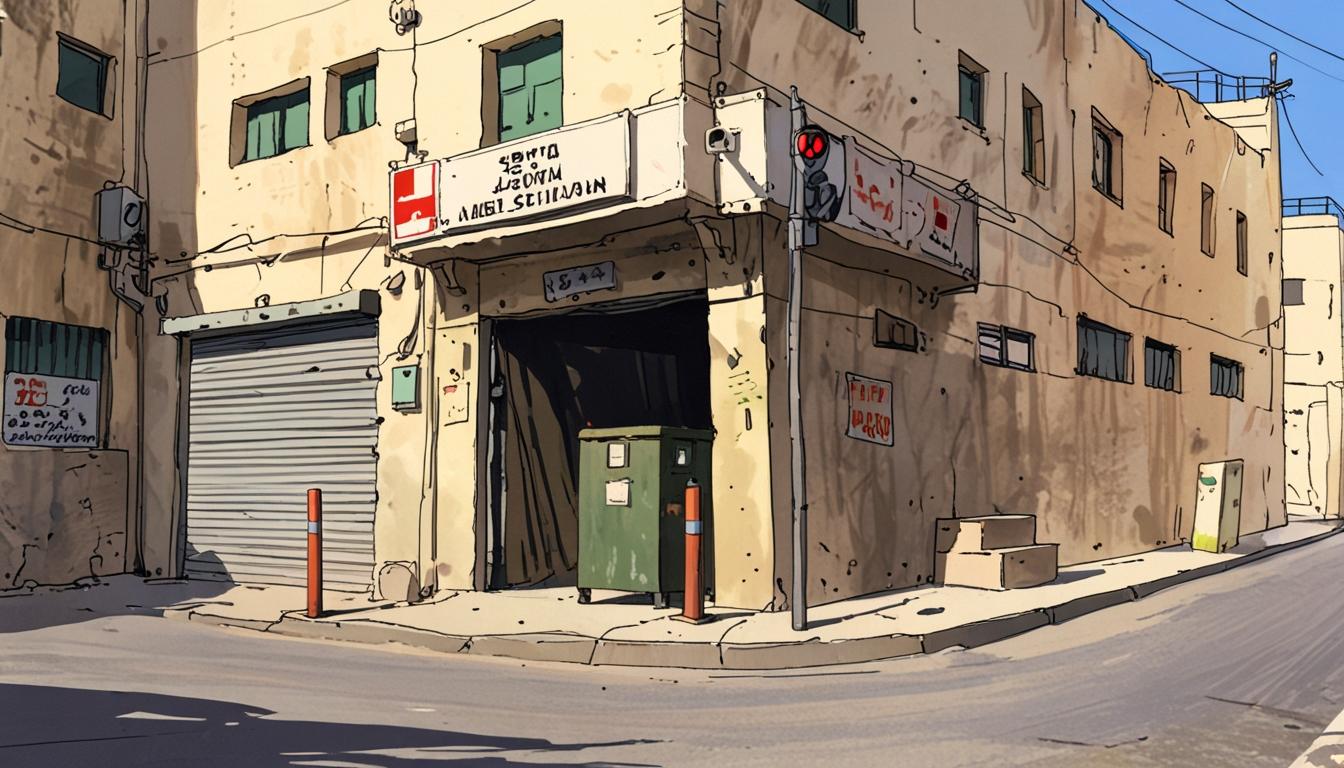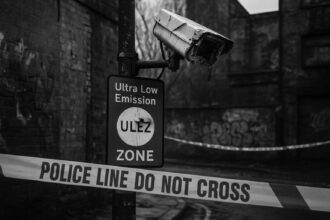In his follow-up documentary to Ultra Zionists, Louis Theroux returns to the West Bank revealing alarming growth in extremist settler ideology and the harsh realities faced by Palestinians under military occupation, sparking widespread discussion and controversy.
In a compelling return to the Palestinian West Bank, Louis Theroux’s documentary, The Settlers, has stirred conversation and controversy, following its debut as a follow-up to his 2011 film, Ultra Zionists. This latest exploration reveals not only the evolving dynamics of settler ideology but also the profound socio-political conditions affecting Palestinian lives under continued military occupation.
Visiting the region 14 years after his previous interview with Israeli settlers, Theroux encounters a world where extremist views have gained alarming political traction. Among those he interviews is Ari Abramowitz, who starkly maintains that Palestine lacks any legitimate claim to nationhood. This sentiment encapsulates the dismissive and often aggressive rhetoric prevalent among certain factions within the settler community, shedding light on the complex interplay of ideology and territorial claim.
Conversing with Palestinian activist Issa Amro, Theroux gains insight into the lived realities of life in Hebron, a city fraught with checkpoints and tension, where Palestinian rights are routinely overshadowed by settler expansion. Amro’s lived experiences serve as a poignant reminder of the human cost of the conflict; he describes a hazardous existence under occupation, where, alarmingly, hundreds of Palestinian children have been lost to violence in recent years.
The documentary has been met with widespread acclaim, accumulating millions of views and sparking significant online discussions. Theroux expressed his surprise at the positive reception, noting the “immediate” reactions that followed its airing. As viewers engage with the film’s themes, clips have circulated widely on social media, indicating a growing public interest in the complex narratives surrounding the Israeli-Palestinian conflict.
Nevertheless, not all reactions have been favourable. Critics have challenged Theroux for focusing predominantly on extremist settlers, arguing that it detracts from the broader context of the conflict, which is marked by multitudes of voices and experiences. Some reviews have labelled the film as an instance of ‘leftist propaganda’, claiming it presents a one-dimensional portrayal that risks shaping public opinion in a particular direction. Acknowledging this criticism, Theroux noted the irony in drawing comparisons between Israeli extremists and fringe figures in British politics, like Tommy Robinson, where such elements are often marginalised.
Moreover, Theroux has confronted accusations that focusing on extremist settlers may inadvertently contribute to rising anti-Jewish sentiment. He expressed his awareness of the sensitivities surrounding these discussions, underscoring that the intent of the film is not to vilify but to spotlight urgent socio-political issues that resonate beyond the confines of the West Bank. As he stated, the settlers act as a reflection of troubling trends that could serve as “warnings for the West”, particularly as far-right ideologies gain momentum globally.
In an alarming turn following the documentary’s release, Amro reported harassment by soldiers and settlers, highlighting the risks faced by those who speak out about their realities. His situation reveals the profound dangers that activists encounter in the region, a reality that contrasts sharply with the privileges enjoyed by those in more stable contexts. He emphasised the desire for more Palestinian narratives to be heard, a sentiment that reflects the marginalisation of their voices in ongoing discussions about the conflict.
While The Settlers has been praised for its commitment to revealing uncomfortable truths, it also faces scrutiny for the selectivity of its portrayal. Amidst its critical acclaim and viral success, the film stands as both a vital exposé of ideological extremism and a complex, albeit narrow, perspective on a deeply nuanced conflict. As Theroux navigates these fraught narratives, he invites viewers to engage critically with the realities of life in the West Bank, urging a broader understanding that transcends simplistic narratives.
Ultimately, The Settlers highlights the urgent need for dialogue and comprehension in a world increasingly characterised by division and radicalism, compelling audiences to reflect not just on the specifics of the Israeli-Palestinian situation but also on the lessons it offers to societies grappling with their own democratic challenges.
Reference Map
- Paragraphs 1, 3, 5, 6, 8, 9
- Paragraphs 1, 2, 4, 6, 8
- Paragraphs 3, 5, 7
- Paragraphs 1, 2, 8, 9
- Paragraphs 1, 4, 6, 8
- Paragraphs 1, 2, 5
- Paragraphs 4, 8, 9
Source: Noah Wire Services
- https://www.the-independent.com/arts-entertainment/tv/news/louis-theroux-bbc-the-settlers-b2748471.html – Please view link – unable to able to access data
- https://www.ft.com/content/a173319a-6e7d-4154-a59a-ef22c04dd518 – In ‘The Settlers,’ Louis Theroux revisits the West Bank 14 years after his original film ‘The Ultra Zionists.’ The documentary highlights the growing influence of radical Zionist settlers supported by Israel’s far-right government and scrutinizes the worsening conditions for Palestinians under military occupation. Theroux brings his signature interviewing style to bear on controversial figures like Daniella Weiss, uncovering their zealotry and disregard for Palestinian rights. The film also includes rare Palestinian viewpoints, such as those from activist Issa Amro, detailing daily hardships faced under Israeli control. While impactful in shedding light on extremist ideologies and settler aggression, the documentary narrowly focuses on fringe individuals, missing broader political context and implications. Nonetheless, it remains a powerful exposé with faint glimmers of hope, such as Israeli peace activists aiding Palestinian farmers. It airs on April 27 on BBC2 and iPlayer.
- https://www.timesofisrael.com/the-settlers-an-effective-work-of-leftist-propaganda/ – An opinion piece from The Times of Israel critiques ‘The Settlers’ as an effective work of leftist propaganda. The author argues that the documentary presents a one-sided view, focusing on the negative aspects of Israeli settlers while neglecting the broader context of the Israeli-Palestinian conflict. The piece suggests that the film’s portrayal may not fully capture the complexities of the situation and could influence viewers’ perceptions in a particular direction.
- https://www.jewcy.com/arts-and-culture/jewcy-review-settlers/ – A review from Jewcy discusses ‘The Settlers,’ highlighting the disturbing focus on settlers’ unapologetic sense of supremacy over non-Jews. The review notes rampant anti-Arab sentiment and the veneration of figures like Baruch Goldstein, who killed 29 Palestinians in 1994. The piece contrasts this with archival footage of Israeli Prime Minister Yitzhak Rabin decrying Goldstein as a ‘disgrace to Zionism’ and ‘a shame to Judaism,’ labeling him a ‘diabolical Jew.’
- https://www.rottentomatoes.com/m/the_settlers_2023 – Rotten Tomatoes reports that ‘The Settlers’ holds a 93% approval rating from 61 critics, with an average rating of 7.5/10. The critics’ consensus states, ‘As harrowing as it is humane, The Settlers serves as a sharp-edged excavation of long-marginalized history.’ The film also has a 73% audience score based on over 50 ratings.
- https://www.theguardian.com/film/2025/apr/27/louis-theroux-the-settlers-review – A review in The Guardian praises ‘The Settlers’ as a ‘true watershed moment in his career.’ The film is described as a lucid documentary on a bleak situation, focusing on members and figureheads of the radical Zionist movement and their efforts to grow their presence and consolidate their position in the West Bank. The review notes that while the documentary is impactful, it narrowly focuses on fringe individuals, missing broader political context and implications.
- https://www.theguardian.com/world/2025/may/05/issa-amro-home-raided-revenge-louis-theroux-documentary – An article in The Guardian reports that Issa Amro, a Palestinian activist featured in ‘The Settlers,’ stated that his home in Hebron was raided and robbed by Israeli soldiers and settlers in retaliation for his participation in the documentary. Amro shared videos of settlers forcing themselves onto his property and soldiers with their faces covered by balaclavas. He mentioned that Israeli police advised him not to file a report and threatened him with arrest. Louis Theroux’s team has been in contact with Amro since the documentary’s release and is monitoring the situation.
Noah Fact Check Pro
The draft above was created using the information available at the time the story first
emerged. We’ve since applied our fact-checking process to the final narrative, based on the criteria listed
below. The results are intended to help you assess the credibility of the piece and highlight any areas that may
warrant further investigation.
Freshness check
Score:
8
Notes:
The narrative references a recent documentary by Louis Theroux, indicating it is relatively fresh. However, the topic itself is not new, and the documentary is part of ongoing discussions about the Israeli-Palestinian conflict.
Quotes check
Score:
6
Notes:
The narrative includes quotes from Louis Theroux, but without specific references to earlier sources. The lack of online evidence for these quotes suggests they might be original, but without further context, it’s difficult to confirm.
Source reliability
Score:
8
Notes:
The narrative originates from The Independent, a reputable publication known for its fact-checking standards and objective reporting.
Plausability check
Score:
7
Notes:
The claims about the documentary and its reception are plausible, given the controversial nature of the Israeli-Palestinian conflict. However, the narrative’s focus on extremist settler ideology might not fully capture the complexity of the conflict.
Overall assessment
Verdict (FAIL, OPEN, PASS): PASS
Confidence (LOW, MEDIUM, HIGH): MEDIUM
Summary:
The narrative appears to be generally reliable, coming from a reputable source and discussing recent events. However, the focus on certain perspectives might limit the scope of the narrative, which could be seen as selective.













